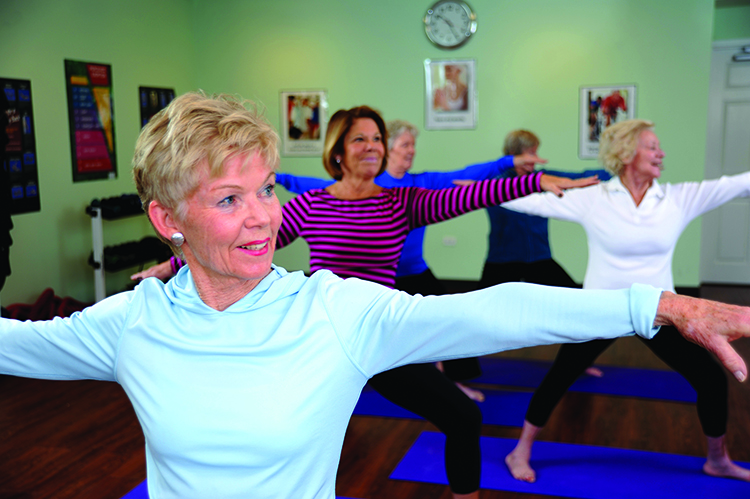The Differences Between IADLs and ADLs

Have you been looking into a more supportive lifestyle for yourself or a loved one? Don’t let common stereotypes about assisted living cloud your judgment – especially if the individual in need of extra help still wants to live as independently as possible.
At The Highlands Assisted Living at Westminster Place, independent living and assisted living are not mutually exclusive. In our assisted living community, seniors live with the freedom to make their own choices and find independence in activities, regardless of how much help they need throughout the day with activities of daily living (ADLs).
So what exactly are ADLs? Family caregivers and individuals researching senior living options may have heard this term, along with instrumental activities of daily living (IADLs). It’s important to understand the differences between the two and how an assisted living community like ours assesses which ADLs and IADLs you can benefit from.
What are the major differences between ADLs and IADLs?
Both ADLs and IADLs refer to daily care tasks. ADLs are more basic, personal tasks that most people don’t struggle with completing each day. IADLs are more complex tasks that are still part of everyday life.
You can think of ADLs as necessary tasks you learned as a child, like using the bathroom, eating, and walking. IADLs are tasks you learned as you became older, like driving, managing money, and cooking. Learn more specific ADLs and IADLs below.
Activities of daily living (ADLs)
Assistance with ADLs varies based on the senior’s capabilities. Some individuals may still be able to feed themselves or even shower and use the bathroom, but they may no longer be able to drive. Typically, ADLs are broken down into six distinct categories:
1. Ambulating
This is a fancy way of saying “to walk around.” If you or a loved one needs general supervision and support while walking both indoors and out, we will assist. Ambulation comes in many forms, such as pushing a wheelchair, walking alongside someone with a walker, or holding a senior’s arm/hands while they walk.
2. Eating
Aging can bring about issues like weakened hand-eye coordination and general strength. Our team assists with the physical act of eating if needed, including getting food into a person’s mouth from the serving vessel, holding a cup with a straw, and encouragement to chew and swallow.
3. Grooming
We all need to personally groom ourselves each day in order to feel at our best. This includes picking out clothes, getting dressed, brushing hair, shaving, cutting nails, brushing teeth, and taking care of overall personal appearance and hygiene.
4. Toileting
Some individuals in assisted living have trouble making their way to the toilet and subsequently cleaning themselves properly. We help residents get to the toilet, use it, clean up, and get back up.
5. Bathing
Bathing presents challenges and even safety hazards. We assist in guiding residents to the shower or bath (sometimes sponge baths in bed are also needed), washing the face and body, drying off, and guiding them back to getting dressed.
6. Transferring
This means moving the body from one position to another. For those who struggle with getting out of a bed or chair, we’ll help them get up and seated into a wheelchair, car, or simply just help them stand so they can walk around.
Instrumental activities of daily living (IADLs)
IADLs are much broader than physical cleanliness and safety. IADLs involve more complex thinking and organizational skills that can be lost throughout the aging process. These include:
Money Management
Managing one’s finances includes paying bills, balancing a checkbook, going to the bank, depositing checks, and monitoring the flow of cash in and out of accounts. This can become overwhelming as individuals get older, so trustworthy guided assistance is important.
Transportation
Many seniors will lose the ability to drive a vehicle due to physical and cognitive challenges and the potential safety hazards those challenges pose. We offer scheduled transportation to shops, appointments, and other necessary places.
Housekeeping & Maintenance
Thankfully, in an assisted living community like ours, residents no longer have to worry about home care. We cover housekeeping, laundry, indoor and outdoor home maintenance, and even organization assistance.
Communication
For residents and their loved ones, it’s important to stay in touch. Communication IADLs include help with checking messages, emails, and voicemails, as well as writing cards and letters.
Medication Management
This is an especially important IADL, as managing medications is crucial to both short- and long-term health. We’ll help organize medications, provide reminders for when to take them, and refill them when they’re running low.
Cooking & Meal Preparation
Dining at The Highlands Assisted Living takes away the worry of having to grocery shop, meal prep, and cook yourself. Not to mention we cater specifically to each individual’s dietary needs. It’s just one less thing you have to manage.
Find help with activities of daily living in assisted living
At The Highlands Assisted Living at Westminster Place, we provide all the support residents need to live their most fulfilled lives – including assistance with ADLs. Come take a tour of our beautiful assisted living community in Evanston, IL to see the remarkable lifestyle for yourself. You’ll get to explore well-appointed, accessible apartments; services and amenities; and interact with our team and residents to learn how you or a loved one will benefit from active living in this helpful level of care.



